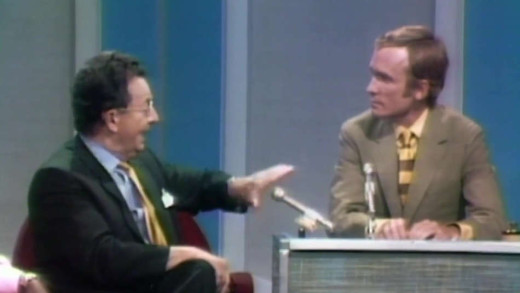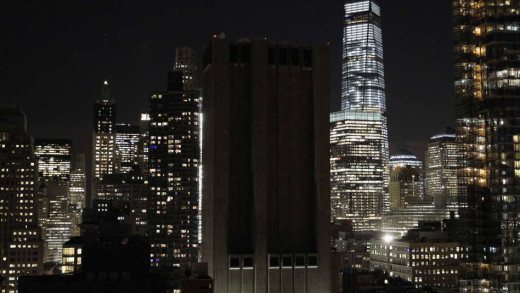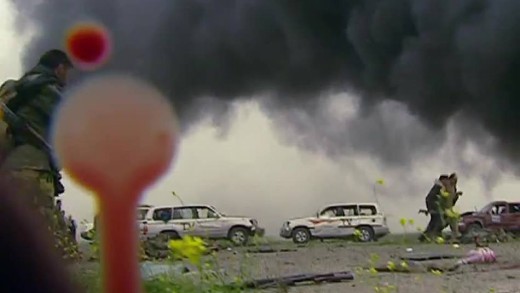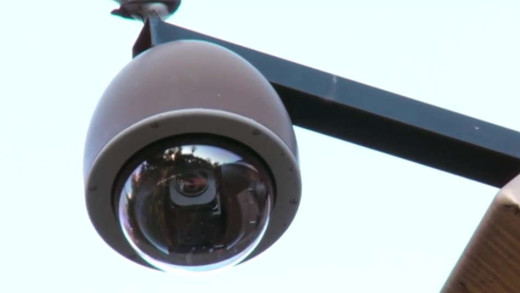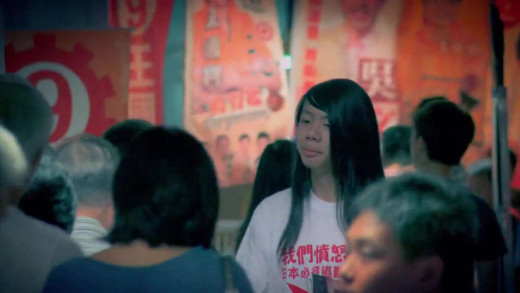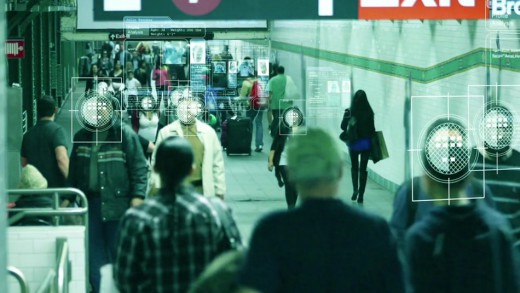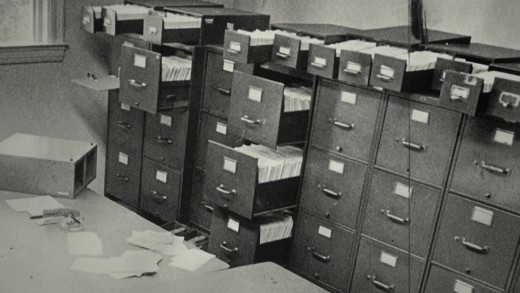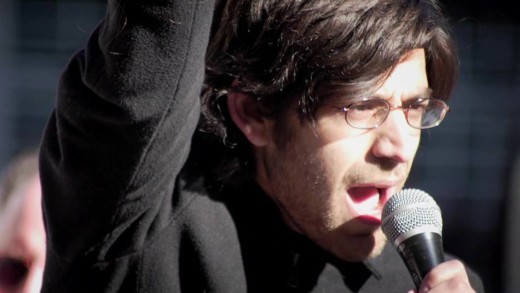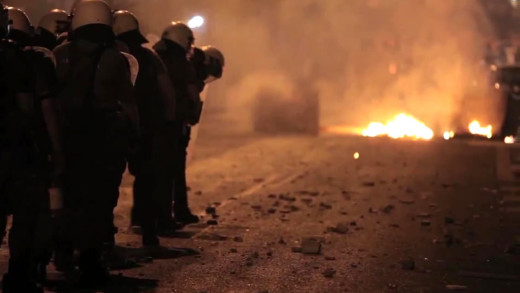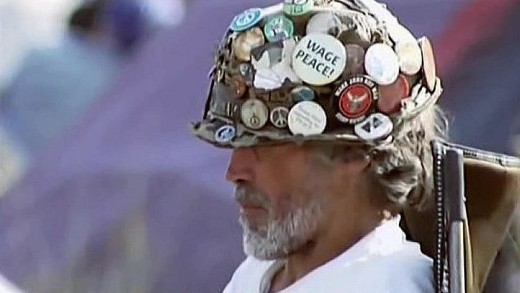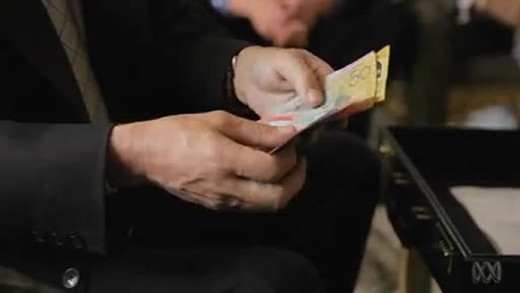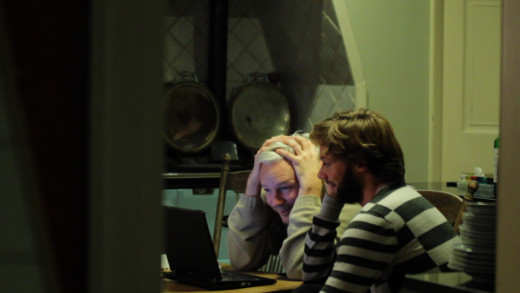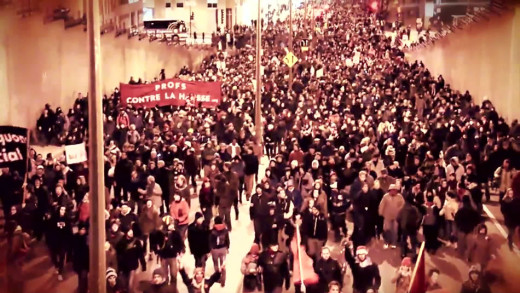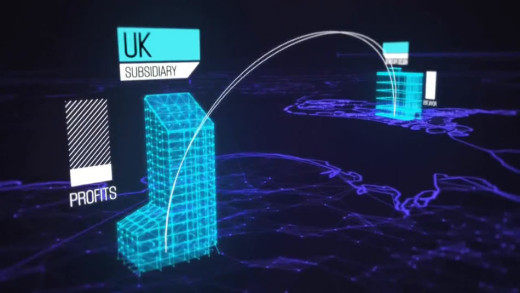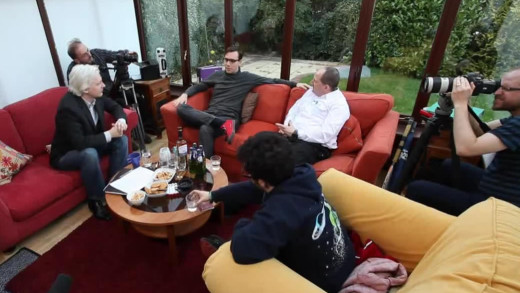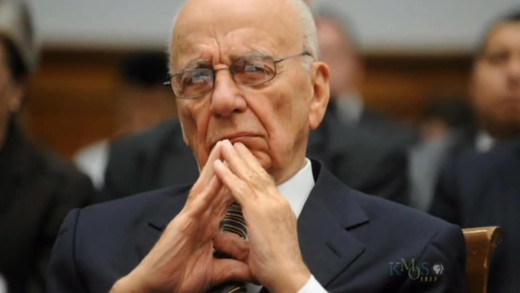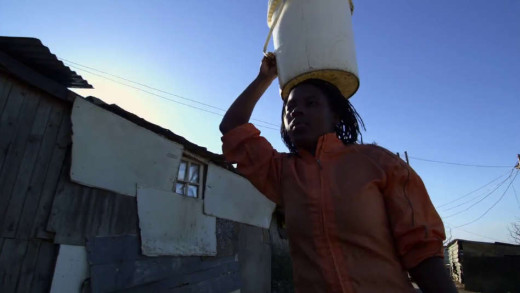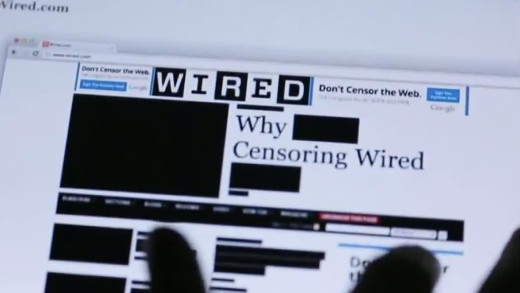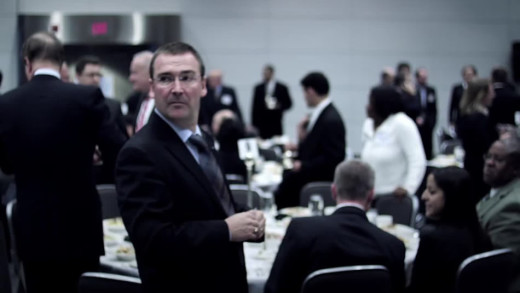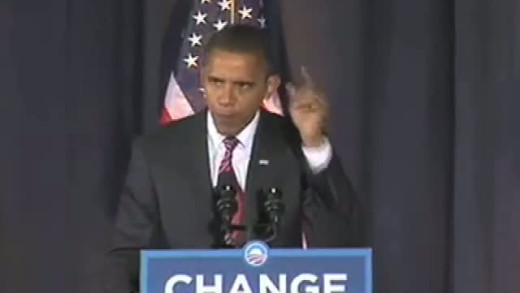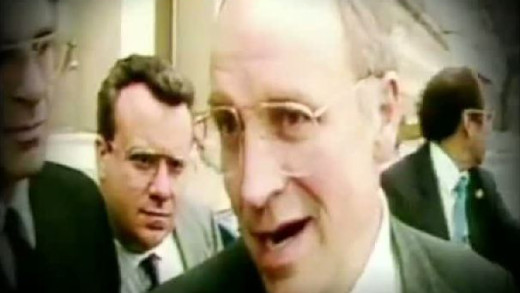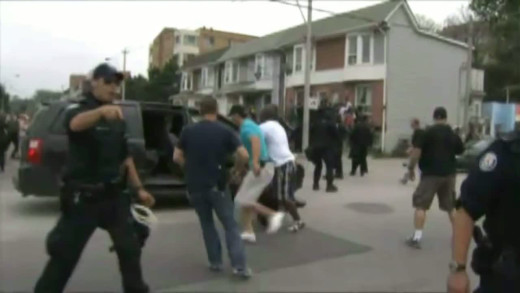All Governments Lie: Truth, Deception, and the Legacy of I.F. Stone looks at an array of award-winning filmmakers who subscribed to I. F. Stone's newsletter in their teens, revealing a new wave of independent, investigative, adversarial journalists following in Stone's footsteps. Reflecting on his work during the era of McCarthyism, a chorus of independent journalists also reflect on today where giant media conglomerates are reluctant to investigate or criticise government policies--particularly on defence, security and intelligence issues. With government deception rampant, and intrusion of state surveillance into our private lives never before more egregious, independent journalists tell their story of being inspired by the iconoclastic Stone, whose fearless, independent reporting from 1953 to 1971 filled a tiny 4-page newsletter. Stone is little known today, but All Governments Lie reveals the profound influence he had on contemporary independent journalism.
Project X is a short film taking viewers on an undercover journey based on formerly top-secret documents that show a partnership between the National Security Agency and telecommunications corporations such as AT&T and Verizon for mass surveillance and bulk data collection of voice and data. The documents reveal TITANPOINTE, the codename for a large windowless sky scraper in New York, where AT&T and other corporations house vast Internet switching equipment and data centres. The facility is also tied to a nearby FBI building, and its rooftop equipment to the SKIDROWE satellite surveillance system. These findings were possible because of documents released to the public by Edward Snowden and other brave whistleblowers.
In Requiem for the American Dream, renowned intellectual figure Noam Chomsky deliberates on the defining characteristics of our time—the colossal concentration of wealth and power in the hands of the few and fewer, with the rise of a rapacious individualism and complete collapse of class consciousness. Chomsky does this by discussing some of the key principles that have brought this culture to the pinnacle of historically unprecedented inequality by tracing a half century of policies designed to favour the most wealthy at the expense of the majority, while also looking back on his own life of activism and political participation. The film serves to provide insights into how we got here, and culminates as a reminder that these problems are not inevitable. Once we remember those who came before and those who will come after, we see that we can, and should, fight back.
Bitter Lake
Bitter Lake explores how the realpolitik of the West has converged on a mirror image of itself throughout the Middle-East over the past decades, and how the story of this has become so obfuscating and simplified that we, the public, have been left in a bewildered and confused state. The narrative traverses the United States, Britain, Russia and Saudi Arabia—but the country at the centre of reflection is Afghanistan. Because Afghanistan is the place that has confronted political figureheads across the West with the truth of their delusions—that they cannot understand what is going on any longer inside the systems they have built which do not account for the real world. Bitter Lake sets out to reveal the forces that over the past thirty years, rose up and commandeered those political systems into subservience, to which, as we see now, the highly destructive stories told by those in power, are inexorably bound to. The stories are not only half-truths, but they have monumental consequences in the real world.
For the past 15 years, the misnomer "War on Terror" has been used by the United States to justify everything from mass surveillance and spying on its own citizens, to the use of secret drone strikes to kill people without trial or sometimes even evidence. Governments have always applied surveillance to those they consider a political threat, but the scale of the clandestine PRISM programme, which collects the data of billions of innocent people all across the globe, is unprecedented. Likewise is the call for the journalists who published the documents revealing the PRISM programme to be prosecuted. In the wake of relations about sustained, systematic abuses of power, it is apparent that in many areas, the United States operates on spurious interpretations of law, often explained in confidential memos, hidden from the public. Other times, the law is disregarded entirely. So what does this mean for resistance? How can citizen rights be reconciled with a rogue state security apparatus?
Filmed over 18 months, Lessons in Dissent is a kaleidoscopic portrait of a new generation of Hong Kong democracy activists. 18-year-old Joshua Wong dedicates himself to stopping the introduction of National Education. His campaign begins to snowball when an interview goes viral on social media. With the new school year fast approaching, a showdown with the government seems inevitable. So with a microphone in hand, and still in his school uniform, he takes to the streets to protest, along with 120,000 people in support. Meanwhile, former classmate Ma Jai fights against political oppression on the streets and in the courts. Having dropped out of school and dedicated himself to the movement, he endures the persecution suffered by those not lucky enough to be protected by the glare of the media. Lessons in Dissent catapults the viewer on to the streets of Hong Kong, confronting the viewer with the country's rising energy of dissent.
Drone
In the wake of the September 11th attacks, amongst the ravaging of war, the United States has been secretly deploying drones to carry out assassinations throughout the Middle East. The drones are increasingly piloted by the likes of young computer gamers groomed by screen culture and computer games of war, where in many cases, the Pentagon is directly involved in the creation of such games as recruitment tools, actively working to lure young people proficient with technology into the new era of the military-industrial-complex. Drone unravels this complex phenomenon while travelling to places such as Waziristan, where innocent civilians, including children and rescue workers are routinely secretly killed, where families and communities ravaged by the drone strikes search for understanding, accountability and adjustment to the daily horrors. The film also takes a look at the young people sitting behind the screens of the new war machines, half a world away, that actually pull the trigger, asking what kind of world is being built in the rise of seemingly endless and lucrative war driven by technological escalation.
The Hacker Wars explores the strange duality of the modern-day computer-hacker as a mischievous provocateur, but also in some cases, societal activists with underlying political fervour, serious or not. The film explores this by profiling some of the renowned characters that have tickled the secretive inner workings of corporations and government agencies for various reasons—ranging from the nefarious and narcissistic, to the political and scandalous. Some do it for the lulz, others do it to prove a point, and others do it to "speak truth to power." In any event, many have faced severe punishments as a result. By following through this, The Hacker Wars touches on issues of whistleblowing, social justice, and power relations, in a time where computer technologies represent extreme power and control. But for whom? And what? This poses the question in deciphering the personalities of the hackers themselves. Are they serious activists with good intentions, or are they driven by insane ideologies?
In March 1971, eight ordinary citizens broke into an FBI office in Pennsylvania, took hundreds of secret documents out, and mailed them to newspapers across the country to share them with the public. The group, calling themselves The Citizens' Commission to Investigate the FBI, undertook the actions at a time where suspicions about systemic abuse and manipulation of social and political movements by intelligence agencies were running high in the context of the Vietnam war and 1960s counter-culture. In doing so, these citizens uncovered the FBI's vast and illegal regimes, leading to insights about mass surveillance, intimidation, entrapment, and the use of provocateurs and informers for manipulation, and sabotage. Much of this would later go on to be known as part of a covert program called COINTELPRO that was run directly by J. Edgar Hoover to destroy social change movements—a history that is imperative to understand in the context of today, where state repression of social change movements continues.
The Internet's Own Boy is a biographical documentary of the programmer and activist Aaron Swartz, who died at age 26. From his help in the development of the basic Internet protocol RSS at age 14, to the co-founding of the social network website Reddit in 2006, Swartz becomes disillusioned with the grooming of academia to the corporate life presented to him, and turns instead to work on issues of sociology, civic awareness and activism. It then becomes Swartz's work in social justice issues and political organising, combined with an open and sharing approach to information access that ensnares him in a two year legal battle, in which authorities seek to make an example of him and the work. The battle sadly ends with Swartz taking his own life. This film is a personal story about what we lose when we are tone deaf about technology and its relationship to the political system, civil liberties and human relationships.
Fascism Inc. examines a series of historical events to compile a view of the past, the present and the future of fascism and its relation to the economic interests of each era—including the current era. The film travels from Mussolini's Italy, to Greece under the Nazi occupation; the civil war and the dictatorship; and from Hitler's Germany to the modern European and Greek fascism. Following on from the foundations of earlier films such as Debtocracy and Catastroika which described the causes of the debt crisis, the impact of the austerity measures, the erosion of democracy and the sell-out of the country’s assets; Fascism Inc. aspires to continue to motivate anti-fascist resistance movements across Europe, and the world.
War Matters
War Matters chronicles a decade of anti-war protest in Britain through the story of veteran peace campaigner Brian Haw, who camped in Parliament Square for over 10 years in protest against the UK government's policies in the Middle East. Brian began his campaign against war on 2nd June 2001, initially in protest of the sanctions against Iraq. After the September 11 attacks in the United States later on that year, Brian's campaign took on a whole new level of importance. War Matters documents this shift by examining the larger issue of the British arms trade and the repercussions of the Iraq and Afghanistan wars around the world, as civil rights are being curtailed in so-called democracies. Where does democracy end and tyranny begin?
Cover Up
Why did appointed officials of the Australian Reserve Bank and its employees break sanctions in Iraq and cosy up to Saddam Hussein through a frontman during the late 1990s, early 2000s and beyond? Why did a former Deputy Governor and other directors hand-picked by the Reserve Bank to safeguard its subsidiary companies from corruption, end up--over a decade--overseeing some of the most corrupt business practices possible? How did they allow millions of dollars to be wired to third parties in foreign countries--including a known arms dealer--in order to win banknote contracts knowingly using bribery and supporting corruption?
In Mediastan, an undercover team of journalists drive across central Asia interviewing editors of local media outlets to publish secret US diplomatic cables that were provided to WikiLeaks in 2010. Success is varied. And so, after regrouping with Julian Assange in England, questioning the editor of the Guardian, and obtaining candid footage of the New York Times editor and its publisher Arthur Sulzberger, Mediastan closes by leaving the viewer with an informative first-hand overview of the machinations of mainstream media. By venturing into the minds—and actions—of the people and institutions who shape the news, Mediastan shows the system for what it's worth, and reveals its true motivations...
Counter-Intelligence is a 5 part series that explores in-depth, the vast, sprawling and secret National Security State that operates throughout the United States--and indeed the world. The series examines the foundations of the Military-Industrial-Intelligence Complex, charting through to the myriad consequences in today's world where secret intelligence organisations continue to hijack governments, manipulate elections and commit heinous crimes against humanity--all under the cloak of "National Security". In the wake of the continued revelations of the NSA PRISM program, this series is now more important than ever to provide a solid historical context to the workings of the rapacious and ever-expanding National Security State...
In the spring of 2012, a massive student strike in opposition to a tuition hike, rocked the streets of the Montréal for over six months. Protests and mass direct-action on the street became part of daily and nightly reality. Several times during the tumultuous spring, the numbers in the streets would reach over one hundred thousand. Police routinely clubbed students and their allies, and arrested them by the hundreds. Some were even banned from entering the city. But every time the cops struck, the student movement got bigger and angrier. This is a story about how the arrogance of a government underestimated a dedicated group of students, who through long-term organising, laid the foundation for some of the largest mass demonstrations in Canada's history.
Salmon Confidential follows renowned biologist Alexandra Morton as she finds that wild salmon are testing positive for dangerous European salmon viruses associated with industrial salmon farming worldwide, and then, how a chain of events is set off by the Canadian government to suppress the findings. Scientists are gagged, research suppressed, evidence not allowed. With the industrial fish farms having moved into Morton's neighbourhood in the late 1980s, since then, there has been a serious decline in wild salmon in the region. So, tracking her findings, the film follows Morton and her team as they move from courtrooms, to Canada's most remote rivers, Vancouver grocery stores and sushi restaurants, providing insights into the workings of government agencies tasked with managing the 'safety of fish and food supply,' that always seem to put industry and the needs of corporations over the natural world, time and time again. Salmon Confidential becomes a call to action to help save the wild salmon from these atrocities, before they're completely wiped out forever.
The Tax Free Tour travels the globe to expose the workings of offshore tax havens and the elite banking systems of the world's billionaires which operate in extreme secrecy. Using examples from multi-national corporations such as Apple Computer and Starbucks, the film traces sizeable capital streams that travel the world literally in milliseconds--all to avoid local laws and paying tax. Such routes go by resounding names like 'Cayman Special', 'Double Irish', and 'Dutch Sandwich'. The Tax Free Tour is a sobering look at how the world's rich live in an entirely different world than the rest of us...
Obey
Obey is a video essay based on the book "Death of the Liberal Class" by author and journalist Chris Hedges. The film charts the rise of corporatocracy and examines the trending possible futures of obedience in a world of unfettered capitalism, globalisation, staggering inequality and environmental crisis -- posing the question, do we resist or obey?
Cypherpunks is a movement originating from the 1980s aiming to improve Internet privacy and security through proactive use of cryptography. With WikiLeaks being a recent offshoot of the many projects derived from the Cypherpunk movement, WikiLeaks editor Julian Assange talks with three activists from the Cyberpunk world to cover the topics of mass surveillance and social control being tied directly into technology as modern society progressively intertwines with technological progress...
Over half a century, Rupert Murdoch's rapacious business audacity has built one of the world's most powerful and ubiquitous media empires. But with revelations of bribery, blackmail, collusion with police and government, wiretapping and other invasions on privacy, the empire seems to be showing cracks. The scandal has prompted criminal investigations on both sides of the Atlantic and also broken open the insular world of the Murdoch family, its news executives, and the vast political elite who court their favour. Murdoch's Scandal tells the story of the battle over the future of News Corporation and the challenging of the extensive media empire...
The Power Principle is a series of films examining the history of the United States and the building of its empire with particular emphasis on the last seventy years of United States foreign policy. The methods that make empire possible are also examined—the politics of fear, the rise of public relations, the 'Mafia Principle' and the reoccurring use of fabled enemies, contrasting the Soviet Union and the Cold War alongside the parallels of today with the "War On Terror". Not only does The Power Principle tie together historical events to revive a common thread, the series may also encourage viewers to reconsider their understanding of historical events and the portrayal of them, showing how those in power play a role in manipulating the collective memory through generations.
When the South African government promises to "eradicate the slums" and begins to evict shack dwellers far outside the city, three friends who live in Durban's vast shantytowns refuse to be moved. Dear Mandela follows their journey from the shacks to the highest court in the land as they invoke Nelson Mandela's example and become leaders in a growing social movement. The film offers a valuable perspective on the role that young people can play in political change, and is a modern portrait of South Africa. Dear Mandela is the centerpiece of a global community engagement project that educates slum residents about their housing rights and inspires young people to become leaders.
In January 2012, two controversial pieces of legislation were making their way through the United States Congress. SOPA, the "Stop Online Piracy Act", and PIPA, the "Protect Intellectual Property Act", were meant to 'crack down' on the illegal sharing of digital media. The laws were drafted on request of the 'content industry' -- Hollywood studios and major record labels. But websites reacted against the government to speak out against SOPA, and the bill was effectively killed off after the largest online 'protest' in history. But it was only one win in a long battle between authorities and online users over Internet regulation. SOPA and PIPA were just the latest in a long line of 'anti-piracy' legislation that governments have been pressing since the 1990s. Can and should the internet be controlled? Who gets that power? How far will the United States government go to control the Internet?
Brussels, the capital and largest city of Belgium, has a long history of hosting the institutions of the European Union within its European Quarter; while the Union itself claims it has no capital and no plans to declare one--despite the fact that Brussels hosts the official seats of the European Commission, Council of the European Union, and European Council, as well as a seat of the European Parliament. In any event, it is here--in this centre of smoke and mirrors--that exists one of the largest concentrations of lobbyist power in the world. The Brussels Business scratches the surface of this extensive world hidden-from-view by looking at the direct influence of lobbyists and the complete lack of transparency in the decision-making processes. Speaking with lobbyists and activists themselves, The Brussels Business reveals the beginnings of a vast landscape of PR conglomerates, front companies, think-tanks and their closely-interlinking networks of power and ties to political and economic elites. The questions then become: Who actually runs the European Union? How? And why?
Lifting The Veil explores the historical role of political parties in the United States as the graveyard of social movements, the massive influence of corporate financing in elections, the absurd disparities of wealth, the continuity and escalation of neoconservative policies with the Obama administration, the insufficiency of mere voting as a path to reform, and differing conceptions of democracy itself. Lifting The Veil exposes the vast hypocrisy of the United States government, with a sense of urgency to bring about real systemic social and political change...
Ethos
From conflicts of interests in politics and collusion with corporate power, to a global mainstream media that serves the interests of a powerful few, Ethos explores aspects of the machinations of today's global systems that work against democracy, the natural environment and lead populations into consumerism and warfare...
In June 2010, leaders from the twenty largest economies met in Toronto, Canada with representatives of corporate interests to discuss the policies that shape globalisation. With exclusion zones, overlapping layers of security fencing and an estimated 25,000 police and military personnel, the city was transformed into an armed grid. Over 1.3 billion dollars were spent on security measures -- more than all previous G8 or G20 meetings combined. Tales From The G20 shows some sides of the Summit, from unmarked vans with snatch squads of plainclothes police to the pre-emptive arrest of people now facing years in prison for organising demonstrations or simply being on the street...
